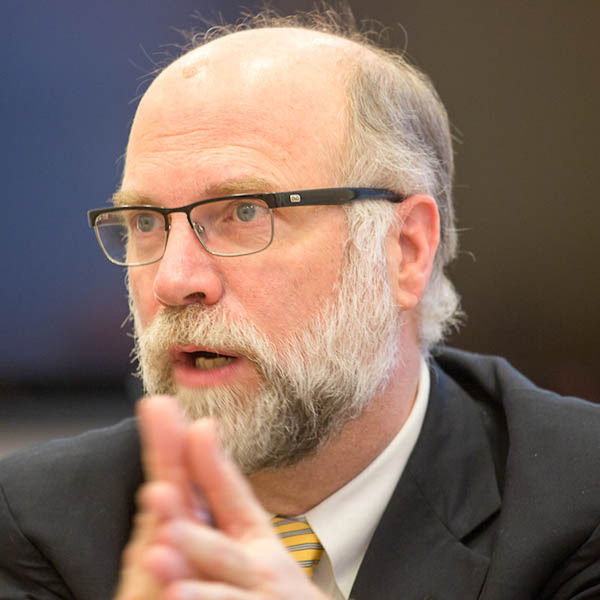
This workshop features an in-progress book project, tentatively titled "Moral and Aesthetic Judgments of Architecture in Interwar Rome, 1922-1943" by Faculty Fellow and Professor of Architecture Steve Semes. During the workshop, Semes will receive substantive feedback on his project from ten of his colleagues in European studies spanning many disciplines, from history and law to memory studies and political science.
Steven Semes on his book project:
"Recent years have seen increasing interest in the ways that public art and architecture communicate messages about historical, social, and political life. My research has focused on architecture and urbanism in Rome during the fascist dictatorship of Benito Mussolini 1922-43. This work remains contested to the extent it is seen as representing the propaganda aims of the regime; specifically, the work of architects who continued working in classical and traditional styles in opposition to the Modern Movement was suppressed after the war, ostensibly for political reasons. While all architects working in Italy during the period were necessarily aligned with the governing party, they were split by a heated stylistic rivalry between traditionalist and modernist camps. After the war, only the traditionalists were subject to moral censure by historians and critics, but I argue that this ostracism was driven by stylistic rather than political motives. Viewing the production of traditionalist designers in interwar Rome in the context of work that preceded and followed the regime, and contemporaneous work in non-fascist countries like Britain, France, and the United States, reveals strong parallels that have not been sufficiently studied. The book will introduce the work of these architects to an anglophone audience within an interpretive framework that allows aesthetic judgment of the work as architecture while recognizing the necessity of a separate and stylistically impartial moral judgment of the ways architecture, to varying degrees, serves political aims of various kinds."
Steven W. Semes is professor of architecture at the University of Notre Dame School of Architecture and a faculty fellow of the Nanovic Institute. He was academic director of the Notre Dame Rome Studies Program 2008-2011 and currently splits his teaching duties between Rome and campus. Educated at the University of Virginia and Columbia University, he is co-editor of the forthcoming New Building in Old Cities: Selected Writings by Gustavo Giovannoni on Architectural and Urban Conservation (in preparation for Getty Publications) and author of The Future of the Past: A Conservation Ethic for Architecture, Urbanism, and Historic Preservation (W. W. Norton, 2009) and The Architecture of the Classical Interior (W. W. Norton, 2004). His many articles have appeared in The New Criterion, National Trust Forum Journal, Change Over Time, Palladio, The Classicist, and Traditional Building. His current research focuses on the traditional architects of the inter-war period in Rome and the history of modern conservation theory and practice in Italy and the United States. He currently leads efforts to establish a graduate program in historic preservation at the School of Architecture. Prior to joining the Notre Dame faculty in 2005, he practiced architecture for three decades in New York, San Francisco, and Washington, DC.